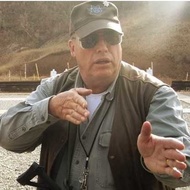6 June 15
“Bloody Omaha”
On 6 June 1944, Tuesday, seventy-one years ago to the day, German commanders high atop bluffs overlooking what Allied commanders had designated “Omaha Beach” in Normandy gleefully reported back to their superiors that the American Amphibious Invasion had been repulsed, stopped on the beach and going no further.
American Sherman “amphibian” tanks, launched into the ocean far offshore, instead of “swimming” to shore as planned, sank to the bottom almost immediately, along with their crews, and were never heard from again. They had been hastily, inadequately “tested” in still ponds, not rough ocean!
Arial “preparation” bombing had been largely ineffective. Allied landing craft started their journey to shore many miles out. The trip took several hours, and lateral currents assured that most hit the beach far from their intended objective. Mines and German artillery claimed many.
German machine-gunners greeted the first to make it to the beach. Many American soldiers drowned as they floundered in the water after going over the side. Of the entire First Wave, only a handful of Americans actually made it to the beach alive and still able to fight. Unit integrity was non-existent.
Omar Bradley, offshore on the British Cruiser Augusta, scanning Omaha through binoculars, saw that nearly every one of his landing craft was burning. He could see almost no motion on the beach itself. He was a hair’s breadth from cancelling remaining waves and withdrawing what few survivors remained alive. It looked to all like a replay of the Dieppe disaster of August 1942, two years earlier. To make matters worse, weather was turning bad.
There was scant optimism on the American and British side. All knew and understood that Omaha was the hinge. When it failed, the rest of the Invasion would disintegrate.
However, unlike during the Dieppe catastrophe, heroic American destroyer, and even battle-cruiser, captains, brushing “procedure,” convention, and even orders aside, virtually beached their ships, so their could train their big guns directly on hapless German positions. Making stationary targets themselves, they blasted Germans until they ran out of ammunition. Those on shore, and offshore, all suddenly sensed that, ever so slightly, the tide was turning!
Against all odds, pockets of stouthearted American soldiers actually started moving forward.
Bradley recanted, and ordered the balance of waves to land immediately, and, by that evening, over 150,000 American fighting men were on shore, along with at least some of their vehicles and equipment. A substantial beach-head was now firmly, irreversibly established.
Rommel’s dream of crushing the Great Invasion on the beach was dashed. German forces in Normandy were compelled into disorganized retreat.
Less than a year later, the War in Europe ended in unconditional Allied victory!
A mere handful of heroes snatched victory from the jaws of defeat that day.
Who insist there are no individual heroes in war, and in most other human endeavors, do so mostly because they themselves lack the courage to ever be one! The foregoing illustrates that it is indeed individual initiative and, yes, personal heroism, that always “turns the tide.” In fact, nothing else ever does, nor ever has, nor ever will! Western Civilization doesn’t need more attaboys and system analysts.
Neither do well in poker games either!
We’ll be saved by heroes, or not at all!
“Though too much valor may our fortunes try, to live in fear of death is many times to die!”
Lope De Vega
/John


